ACat Corporation is committed to the pursuit of a robust sta
A-Cat Corporation is committed to the pursuit of a robust statistical process control (quality control) program to monitor the quality of its transformers. Ratnaparkhi, aware that the construction of quality control charts depends on means and ranges, provides the following descriptive statistics for 2006 (from Exhibit 1).
2006
Mean 801.1667
Standard Error 24.18766
Median 793
Mode 708
Standard Deviation 83.78851
Sample Variance 7020.515
Kurtosis -1.62662
Skewness 0.122258
Range 221
Minimum 695
Maximum 916
Sum 9614
Count 12
The operations manager is assigned the task of developing descriptive statistics for the remaining years, 2007–2010, that are to be submitted to the quality control department. A-Cat’s president asks Mittra, his vice-president of operations, to provide the sales department with an estimate of the mean number of transformers that are required to produce voltage regulators. Mittra, recalling the product data from 2006, which was the last year he supervised the production line, speculates that the mean number of transformers that are needed is less than 745 transformers. His analysis reveals the following: t = 2.32 p = .9798 This suggests that the mean number of transformers needed is not less than 745 but at least 745 transformers. Given that Mittra uses older (2006) data, his operations manager knows that he substantially underestimates current transformers requirements. She believes that the mean number of transformers required exceeds 1000 transformers and decides to test this using the most recent (2010) data. Initially, the operations manager possessed only data for years 2006 to 2008. However, she strongly believes that the mean number of transformers needed to produce voltage regulators has increased over the three-year period. She performs a one-way analysis of variance (ANOVA) analysis that follows:
2006
2007
2008
779
845
857
802
739
881
818
871
937
888
927
1159
898
1133
1072
902
1124
1246
916
1056
1198
708
889
922
695
857
798
708
772
879
716
751
945
784
820
990
Anova: Single Factor
SUMMARY
Groups
Count
Sum
Average
Variance
2006
12
9614
801.1667
7020.515
2007
12
10784
898.6667
18750.06
2008
12
11884
990.3333
21117.88
Source of Variation
SS
df
MS
F
P-value
F crit
Between Groups
214772.2
2
107386.1
6.870739
0.003202
3.284918
Within Groups 515773
33
15629.48
Total 730545.2 35
The results (F = 6.871 and p = 0.003202) suggest that indeed the mean number of transformers has changed over the period 2006–2008. Mittra has now provided her with the remaining two years of data (2009 and 2010) and would like to know if the mean number of transformers required has changed over the period 2006–2010.
Finally, the operations manager is tasked with developing a model for forecasting transformer requirements based on sales of refrigerators. The table below summarizes sales of refrigerators and transformer requirements by quarter for the period 2006–2010, which are extracted from Exhibits 2 and 1 respectively.
Sales of Refrigerators
Transformer Requirements
3832
2399
5032
2688
3947
2319
3291
2208
4007
2455
5903
3184
4274
2802
3692
2343
4826
2675
6492
3477
4765
2918
4972
2814
5411
2874
7678
3774
5774
3247
6007
3107
6290
2776
8332
3571
6107
3354
6792
3513
Questions to be answered!!!
Introduction to the problem:
A. Provide a concise description of the scenario that you will be analyzing. The following questions might help you describe the scenario: What is the type of organization identified in the scenario? What is the organization’s history and problem identified in the scenario? Who are the key internal and external stakeholders? II. Create an analysis plan to guide your analysis and decision making: A. Identify any quantifiable factors that may be affecting the performance of operational processes. Provide a concise explanation of how these factors may be affecting the operational processes. B. Develop a problem statement that addresses the given problem in the scenario and contains quantifiable measures. C. Propose a strategy that addresses the problem of the organization in the given case study and seeks to improve sustainable operational processes. How will adjustments be identified and made?
| 2006 | 2007 | 2008 |
| 779 | 845 | 857 |
| 802 | 739 | 881 |
| 818 | 871 | 937 |
| 888 | 927 | 1159 |
| 898 | 1133 | 1072 |
| 902 | 1124 | 1246 |
| 916 | 1056 | 1198 |
| 708 | 889 | 922 |
| 695 | 857 | 798 |
| 708 | 772 | 879 |
| 716 | 751 | 945 |
| 784 | 820 | 990 |
Solution
A.
The following are the quantifiable factors that may be affecting the performance of operational process:
B.
Problem scenario:
C.
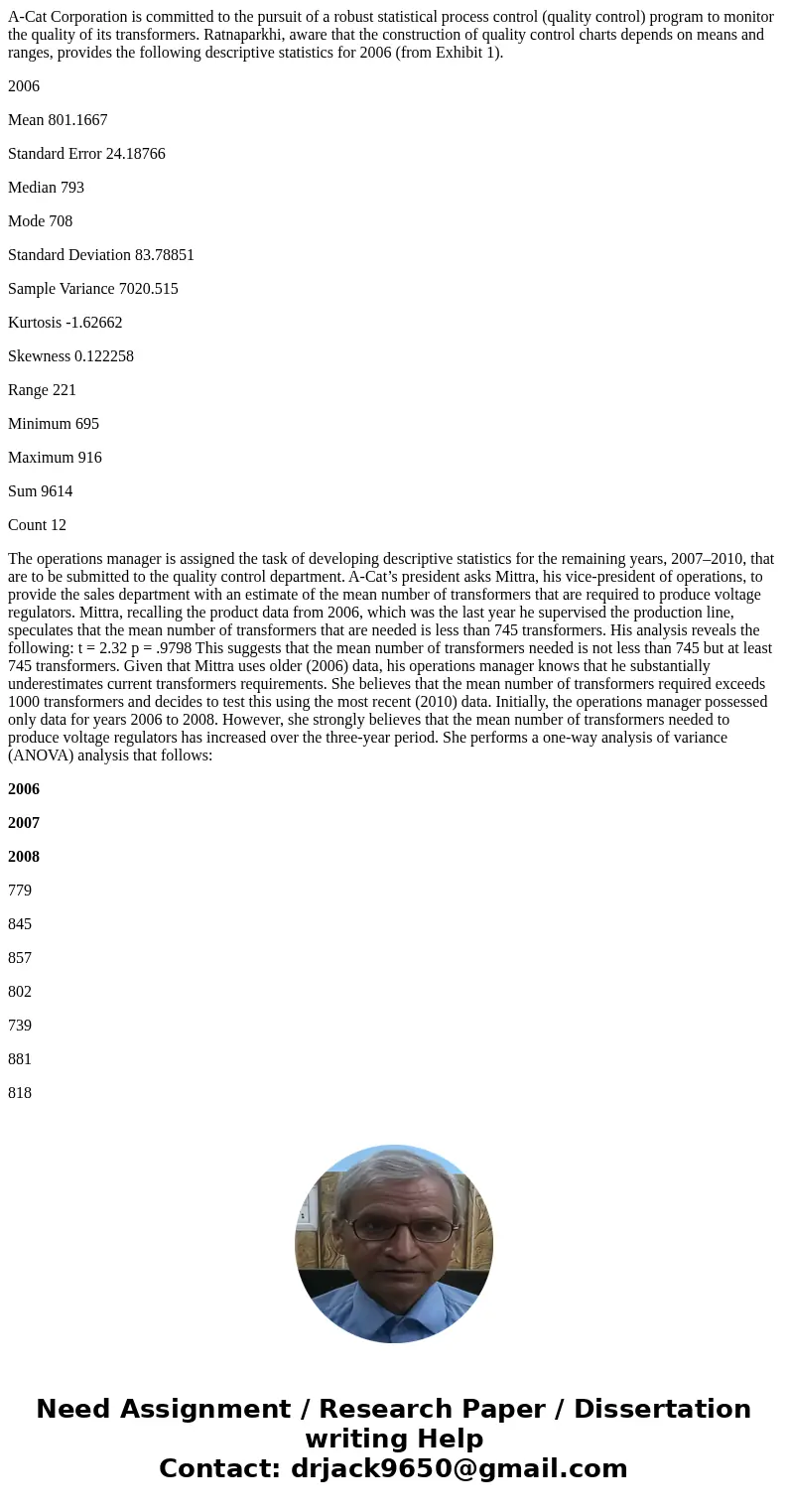
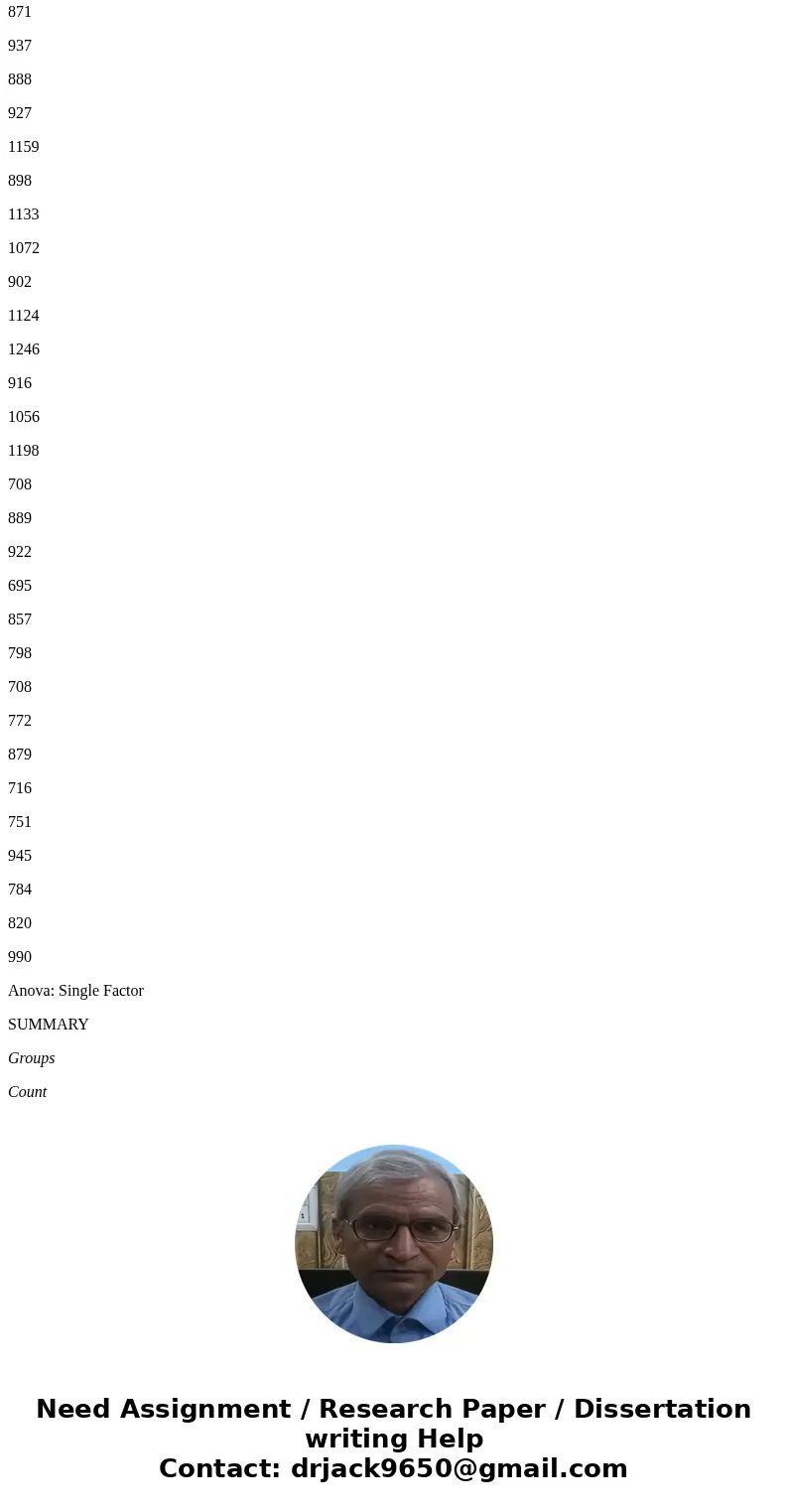
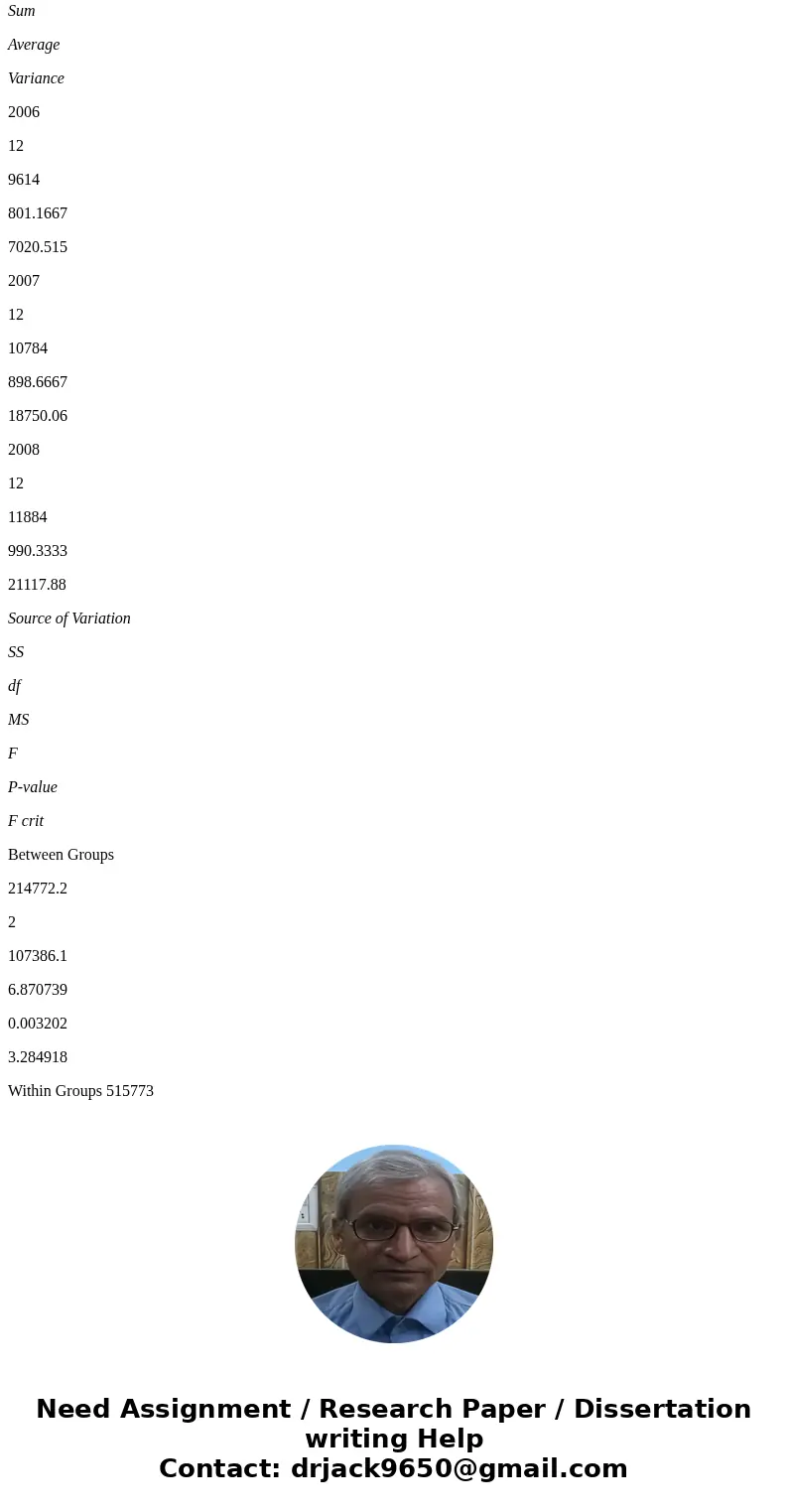
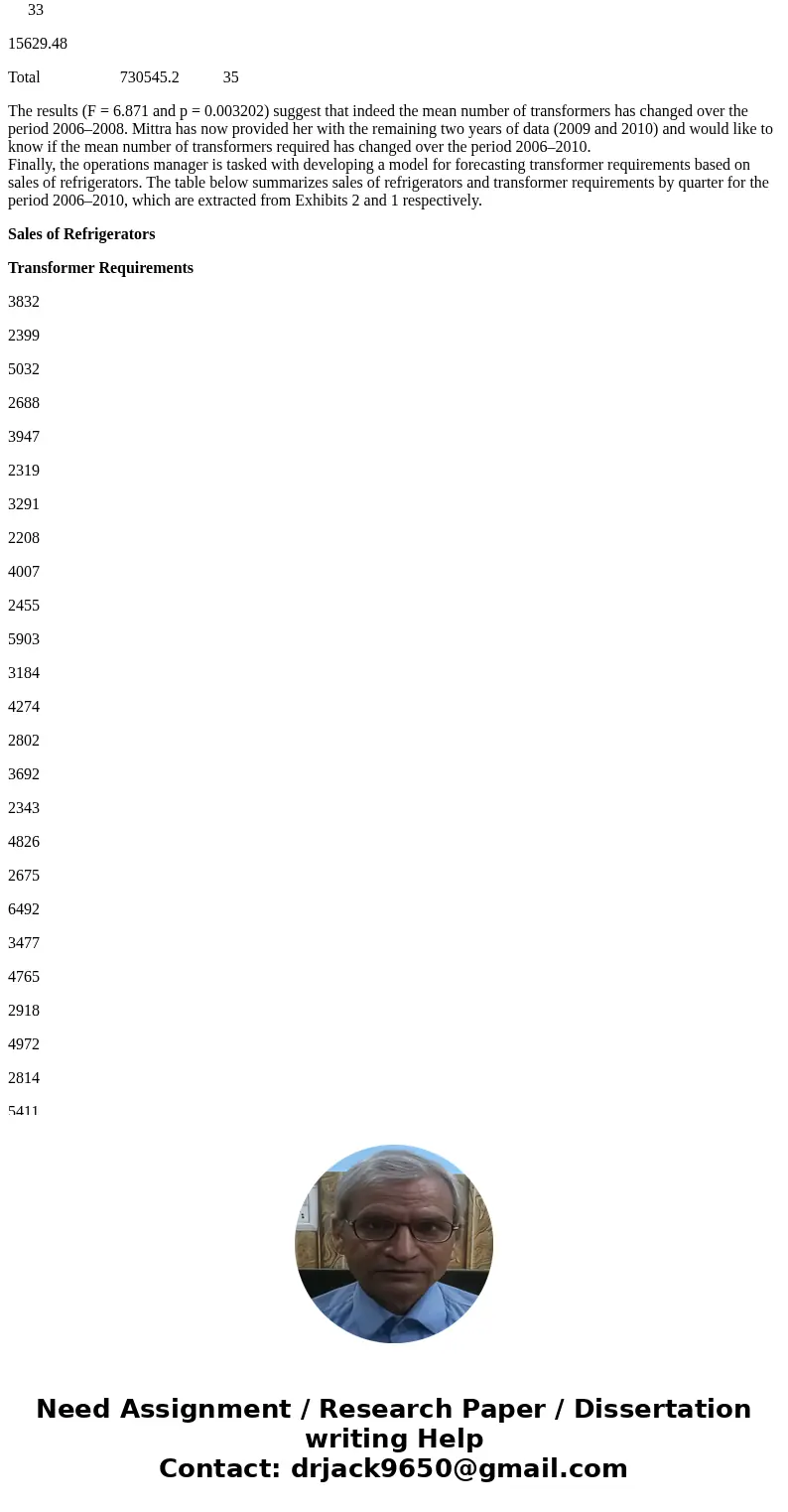
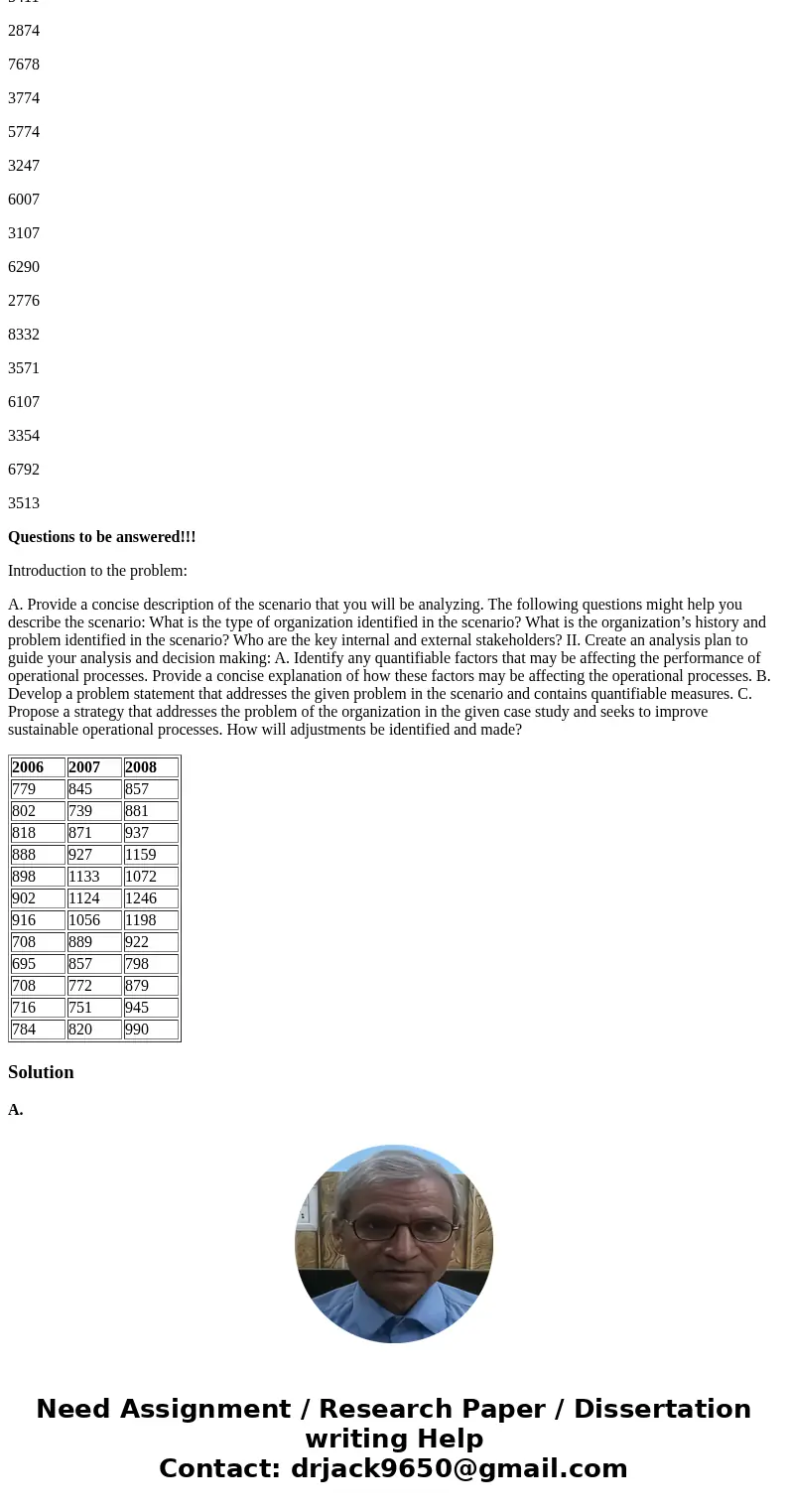
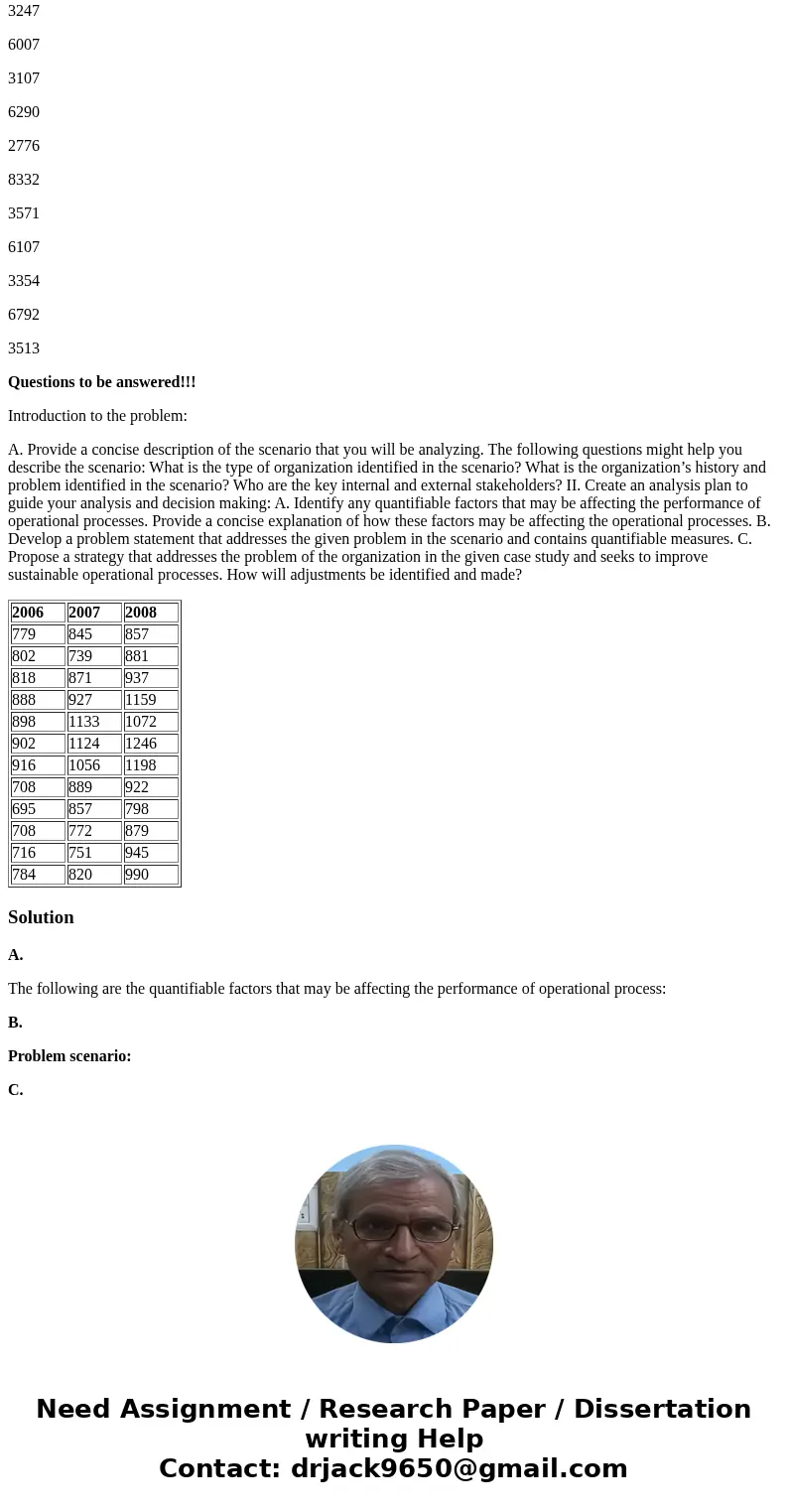
 Homework Sourse
Homework Sourse